
Let us all give thanks for dishwashers. These modern marvels can handle gravy-smeared plates, coffee mugs and forks with caked-on food.
But not everything should go in your dishwasher. So, review these tips before you wash, and everything will come clean after a big meal.
1. Cast-iron skillets
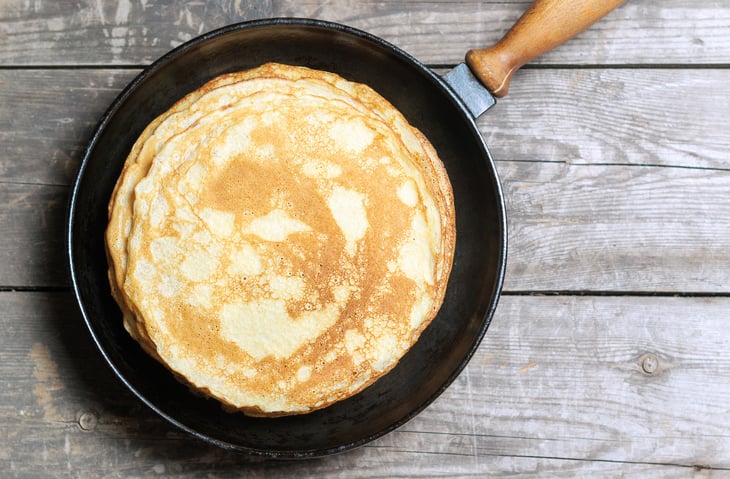
Cast-iron skillets are beloved for their heat retention. But they require special care: Cast-iron cookware must be seasoned with regular applications of oil, and putting them in the dishwasher will strip that right off.
Thankfully, wiping and washing them out after cooking is often all it takes. For removing stubborn stuck-on food, I recommend a chainmail scrubber.
As I explain in “6 Product Swaps That Help Me Avoid Trips to the Store“:
“Rather than buy disposable scouring pads, my new favorite tool is something that looks and sounds like it should be in the castle of a medieval knight. A chainmail scrubber is a simple piece of stainless steel formed into interlinking rings — some have an ergonomic silicone core, others are all chainmail. Use a chainmail scrubber to lift hardened food residue right off.”
2. Wooden cutting boards
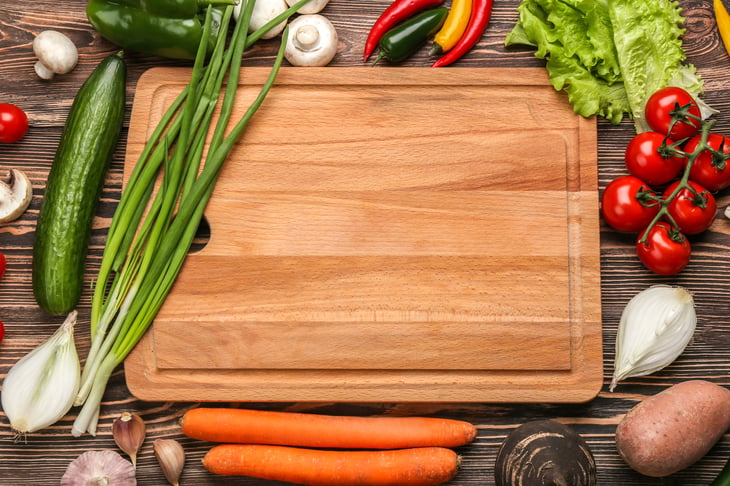
Heat and water can warp and crack your board, and the resulting cracks can breed bacteria. Hot water, soap and elbow grease should work wonders. If you’ve used the board for raw meat and are worried, try a sanitizing solution of 1 part vinegar to 4 parts water. Wooden spoons should also get the hand-washing treatment.
3. Moscow mule mugs
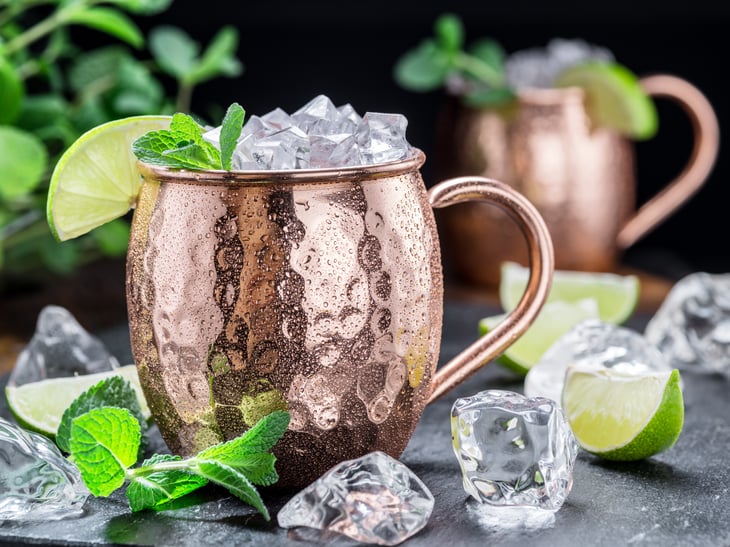
Moscow mules are trendy cocktails consisting of vodka, lime juice and spicy ginger beer. They’re often served in special and stylish copper mugs, which are usually lined with another metal for safety.
Toss them in the dishwasher, though, and that vital lining could chip and wear off, and the stylish look might tarnish. Wash them by hand, and they’ll be there to clink toasts for many years to come.
4. High-quality knives

Sure, your basic, inexpensive butter knife can go in the dishwasher. But for the fancy, pricey knives kept in a cutting block, you should stay sharp and wash them by hand.
Handles are often wood, which can warp or crack just like cutting boards. Blades may be carbon steel, and thus prone to rust. Detergents can discolor or damage the blade, and water jets can jostle them around, dulling or breaking the blade.
5. Fancy china
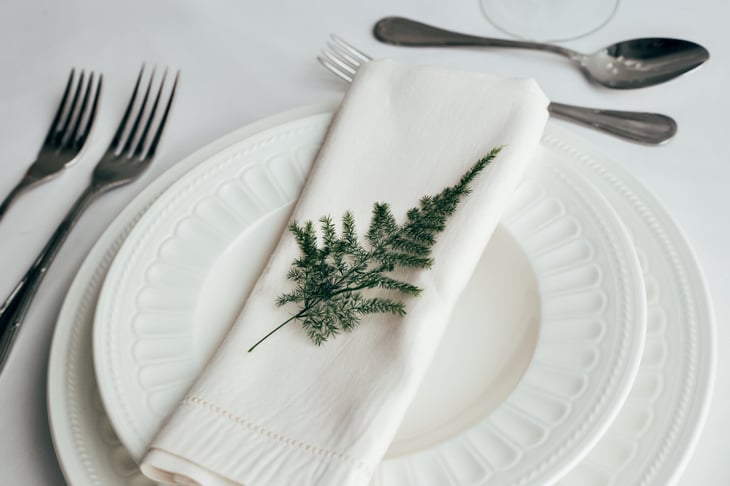
Antique, hand-painted or gold-leaf patterns can discolor and fade in a dishwasher’s strong chemical bath, GE Appliances says. So, the safe bet is to keep those fancy dishes for the hand-washing pile — especially if they’re a pattern you hope to pass down to future generations.
6. Certain reusable plastic containers
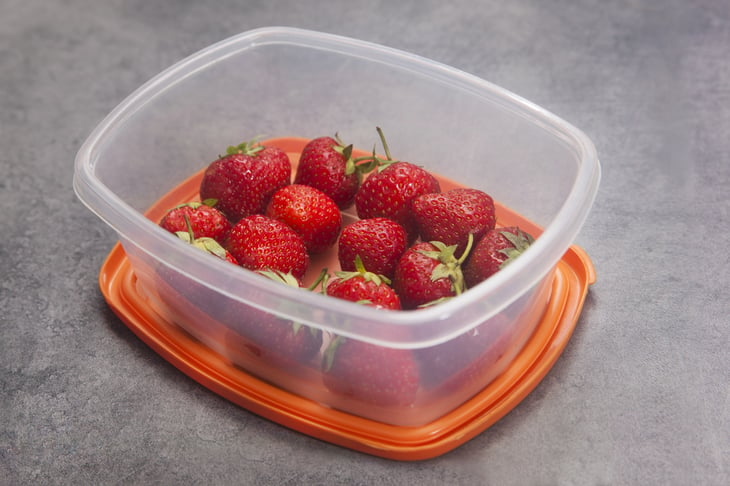
Plastic storage containers can be a lifesaver for leftovers, prechopped ingredients, freshly picked fruit or almost anything that needs its own little temporary apartment.
But, just like apartments, the quality of such containers varies wildly. Some of the thicker, sturdier cartons are fine for the dishwasher, but keep them and their lids together on the top rack — if they touch the heating elements in the bottom of your machine, they may melt.
7. Aluminum bakeware
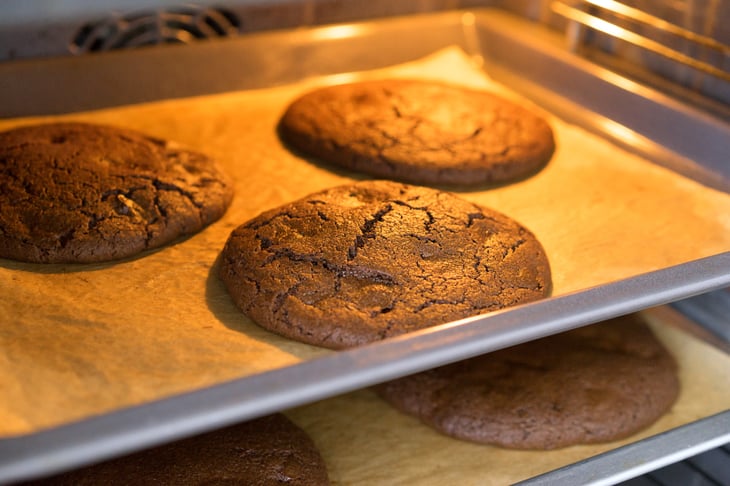
Some aluminum bakeware is OK in the dishwasher — check the label or wrapper when you buy a new pan to be sure. But if your item isn’t specifically labeled as dishwasher-safe, don’t risk it.
Many pans can dull and darken due to a dishwasher’s chemicals and heat. And while that’s the way the cookie sometimes crumbles, you can prevent it with a little hand-washing action.
8. Crystal barware
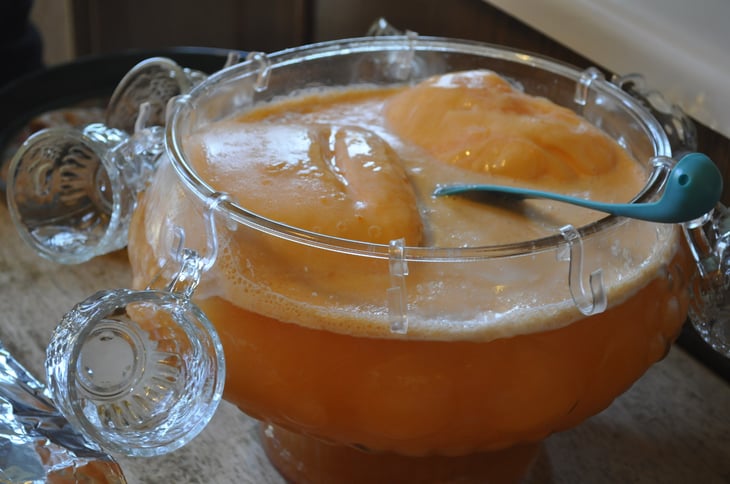
Fine crystal can sparkle like sunlight on a snowy field, catching the light and casting it off into rainbows. But when mistreated, it can also shatter like an icicle hitting pavement.
Stick with the sparkle — hand wash the crystal wine goblets, or Grandma Eliza’s punch bowl, or the Champagne flutes from your wedding. Dishwasher heat, friction and detergents can dull or scratch the surface.
9. Gold-plated cutlery
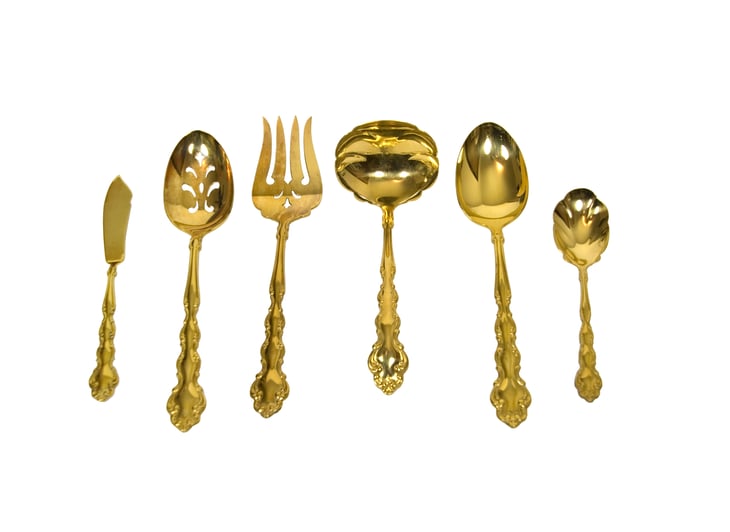
If your fancy cutlery — or any of your formal dinnerware — is good as gold, you’re lucky as a leprechaun. To keep the gold rush going, wash each piece carefully by hand. It’s likely to be delicate, and the gold coating can come off in the dishwasher.
10. Anything with a label
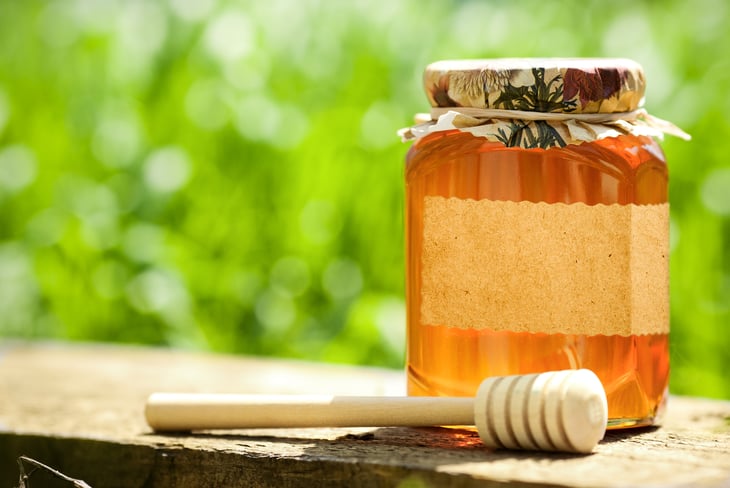
Hot water will attack paper labels with the ferocity of a guard dog going after the letter carrier. If you want the label preserved, wash your jar or other item by hand.
In the dishwasher, the label can sludge off in pieces and get stuck just where you don’t want it to be, clogging your dishwasher’s spray arms or pump.
11. Anything repaired with glue
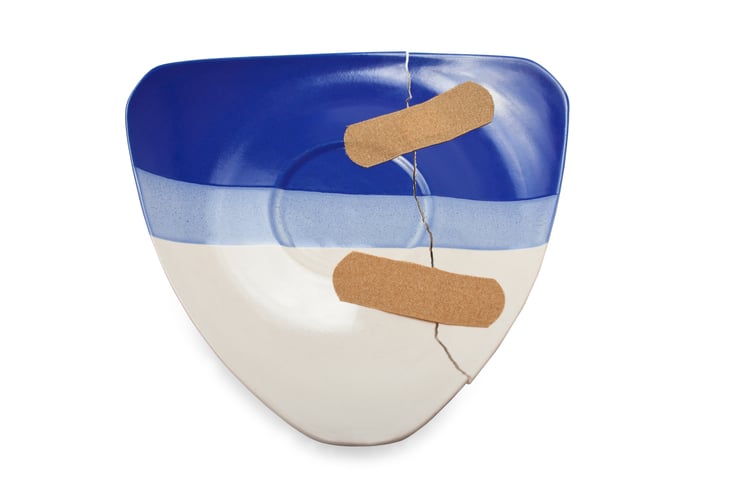
Just as those labels prove, anything attached with glue is a risky dishwasher item. Hot water can dissolve glue. So, if you’ve carefully glued a handle back onto a beloved mug or bowl, keep it far from the dishwasher’s hot little hands.
12. Items with printed measurements or words
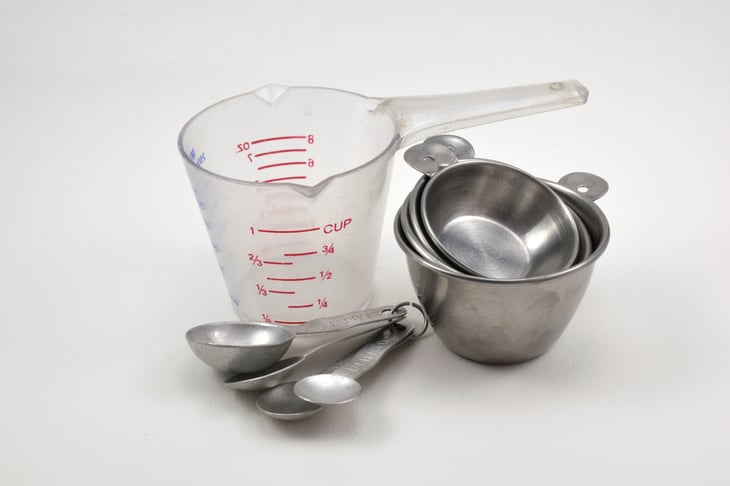
It doesn’t always happen, but items with printed measurements or words on them can lose their legibility in a dishwasher’s hot steamy belly. Most glass measuring cups are strong enough to keep their markings for years, but plastic cups may not be as tough, and soon that 1/4 indicator could look like a 1/1.
And don’t even think about loading up that Class of 1989 beer stein you brought back from the 30-year reunion.
13. Nonstick pans
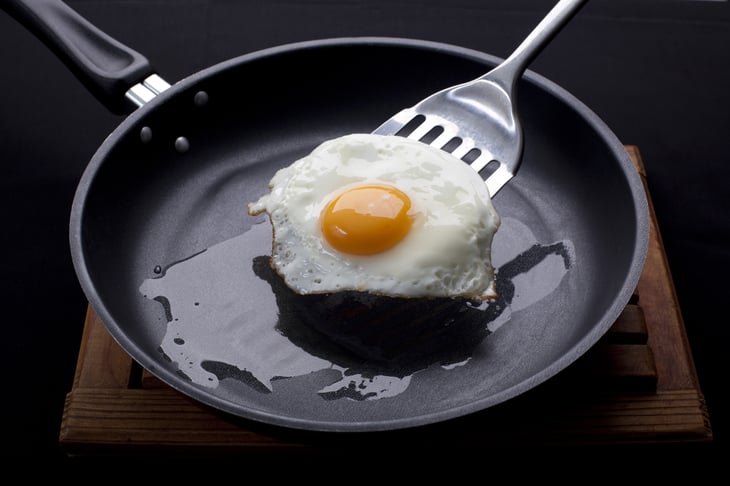
Nonstick pans are a gem of an invention. The cookware is lined with a special coating, so foods (mostly) come right off and don’t stick — hence the name. They’re generally quite easy to wash by hand.
So, if you end up with a messy one, don’t be tempted to try the dishwasher. The heat of the machine can wear away at the coating, and wash the “non” right out of your “nonstick pan.”
14. Flour sifters
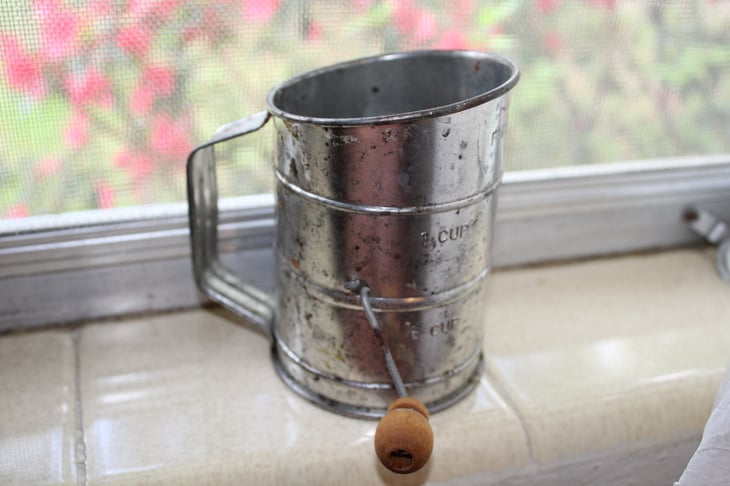
Here’s a shocker: You don’t actually have to wash flour sifters at all, if you just use them to sift flour. The mesh sieve part doesn’t do well in a dishwasher’s hot water, and sifters are often made of thin, cheap metal that will rust and pit easily. (And if the handle is part wood, as shown above, that’s another reason to steer clear.)
Generally, you can just rinse or wipe out the flour. But if the sifter is absolutely clogged, let it sit for a while in a sink full of soapy water, dry as best you can, and put on a cookie sheet in your oven under very low heat to dry. Or, blast it briefly with your hairdryer. You want to make sure no moisture remains to cause rust. An old toothbrush will also help with any clumps of flour that don’t want to give way.
15. Hand-painted items
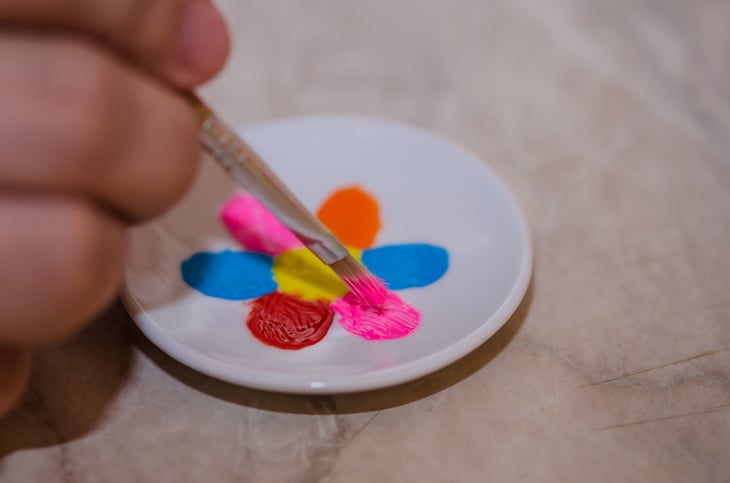
You wouldn’t put a Picasso in the dishwasher, so don’t put your niece Peyton’s pottery artwork in there either. Wash it by hand.
Jackson Pollock may have “freed the line,” but in this case, you’ll want those precious paint strokes to stay right where Peyton intended them to be.
16. Insulated coffee mugs
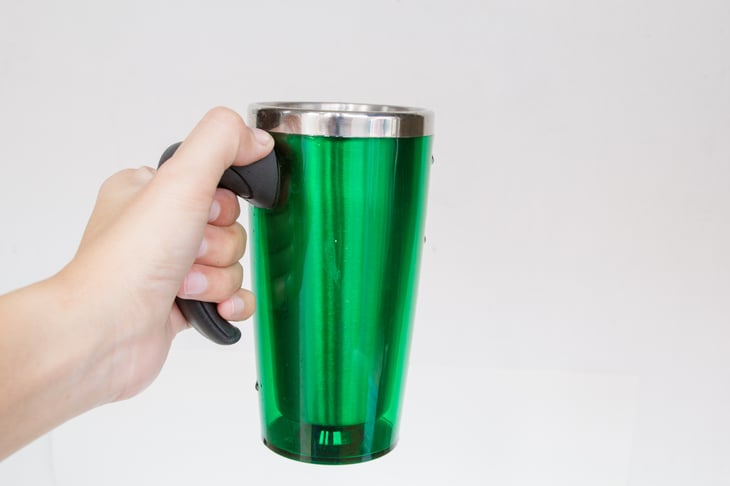
How much do we love our insulated travel coffee mugs? A whole latte. They keep coffee warm through the most agonizing commute. But to keep the cup as fresh as it keeps you, don’t send it through your dishwasher.
These cups keep your coffee warm by virtue of two separate shells, and the dishwasher’s heat can breach them, trapping water between the two walls and ruining the cup’s heat-holding ability. And that would be depresso.





Add a Comment
Our Policy: We welcome relevant and respectful comments in order to foster healthy and informative discussions. All other comments may be removed. Comments with links are automatically held for moderation.